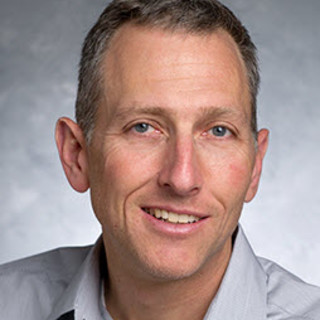
“The simplest questions are the most profound.
Where were you born? Where is your home? Where are you going? What are you doing?
Think about these once in a while, and watch your answers change.”
— Richard Bach, Illusions
To an outsider, a hospital often feels like a chaotic place. Varied people flutter in and out of rooms, the color of their scrubs identifying nurse vs. patient care tech vs therapist. Bulky portable X-ray machines compete for hallway space against more streamlined transport carts, shuttling patients to procedures and tests and back again. All this against a soundtrack of monitor alarms in-between intermittent overhead announcements.
For those who work inside the hospital walls, there is a structure and pattern beneath this apparently random Brownian motion. Environmental services with their Zamboni-like machines clean the floors at 4 AM. Phlebotomist follow soon after to draw 5 AM labs. Portable X-rays make their way into the rooms about 5:30 AM. Resident handoffs start at six before the nurses have their shift change at seven. Multidisciplinary rounds tentatively start at eight. Notes finished by twelve so I can get to my first office patient by one in the afternoon.
Patients add improvisation, going off-script to inject their own episodes of distress, instability and crisis. But every day, in each hospital, there is a unique structure and rhythm to the day to anchor and build off of, to manage and cope with the unpredictable nature of the ICU. Almost every day for the last twenty years, I have relied on and used these routines and patterns to navigate and manage my day.
A year ago, everything changed.
The answers to “What am I doing?” and “Where am I going?” no longer felt right. The collective toll of non-stop fast-paced days, beeper-filled nights, endless charting in the EMR, and four years of a frivolous lawsuit hanging over my head were just some of the factors that ultimately led to my burnout. So, I made a leap of faith and went part-time.
Taking a step away from medicine created much-needed physical and mental space. In the absence of the usual minute-to-minute demands of managing and supervising a busy ICU, I was able to wake up and write my own story for the day. Spontaneity and happenstance were no longer rarities. Opportunities that I would have let pass me by became realities. I coached a high school sport. I travelled and engaged in new ways with my children. I attended conferences and challenged my status quo. I wrote, reflected and shared my journey so far.
But I am finding that improvisational theatre may not be my strength. It has been a year now that I have been part-time. Forty-six weeks cut in half to twenty-three. And the challenge of a lack of structure is just one of many that have caught me by surprise. It’s hard to admit, but the lack of a routine has been a challenge. I have gone from not enough minutes in the day to the burden of excess. Without the pressure to utilize every second, the day often gets away from me. I am now on my own to figure out my approach to each day. Who could have imagined how much I’d relied on the controlled chaos of the ICU to structure my day?
I started this process as a transition away from an unsustainable work-life balance. A year later I find myself still asking the same questions. Where am I going? What am I doing? I made the move to take some tentative steps away from the status quo. But now it is time to do more than enjoy the freedom and opportunity a daily blank page provides. It is time to move forward with purpose. I have taken the first few steps. I have been accepted into the MPH program at Johns Hopkins Bloomberg School of Public Health. I am working on my writing and am part of Doximity’s Authors Program. I hope to eventually combine these skill sets to advocate and effect positive change in health care reform. I am on the advisory board at Lightning Bolt Solutions. I am still a Critical Care and Pulmonary MD. I will always be a husband and parent to my amazing family.
The coming year will bring plenty of lessons to learn, challenges to overcome and successes to celebrate. In the coming months, I will share them with you. The unexpected issues of trust between me and my patients or the challenge of recognizing and accepting my transition from partner to employee. Managing the financial pressure of a part-time salary and dabbling in the world of locums to help supplement income. The opportunity of coaching a high school water polo team. The challenge of becoming a student again, while watching my two children navigate their own academic pursuits.
Cutting back to part-time this past year has had a profound impact. Working at a breakneck non-stop pace did not allow for self-reflection and discovery. Taking a step back from that allowed me to ask myself seemingly simple questions and realize that these simple questions do not necessarily have simple answers. So far, I have been writing a new script each day, learning to manage the unexpected challenge of a wide-open schedule. But I am ready now for more. I am ready to write the next chapter.
Jeremy Topin, MD is a Pulmonary and Critical Care Physician in Chicago, IL. He writes about end-of-life issues in the ICU, physician burnout and work/life balance. He blogs at www.jtopinmd.com and tweets @jtopinmd. Dr. Topin is a 2018–19 Doximity Author.






